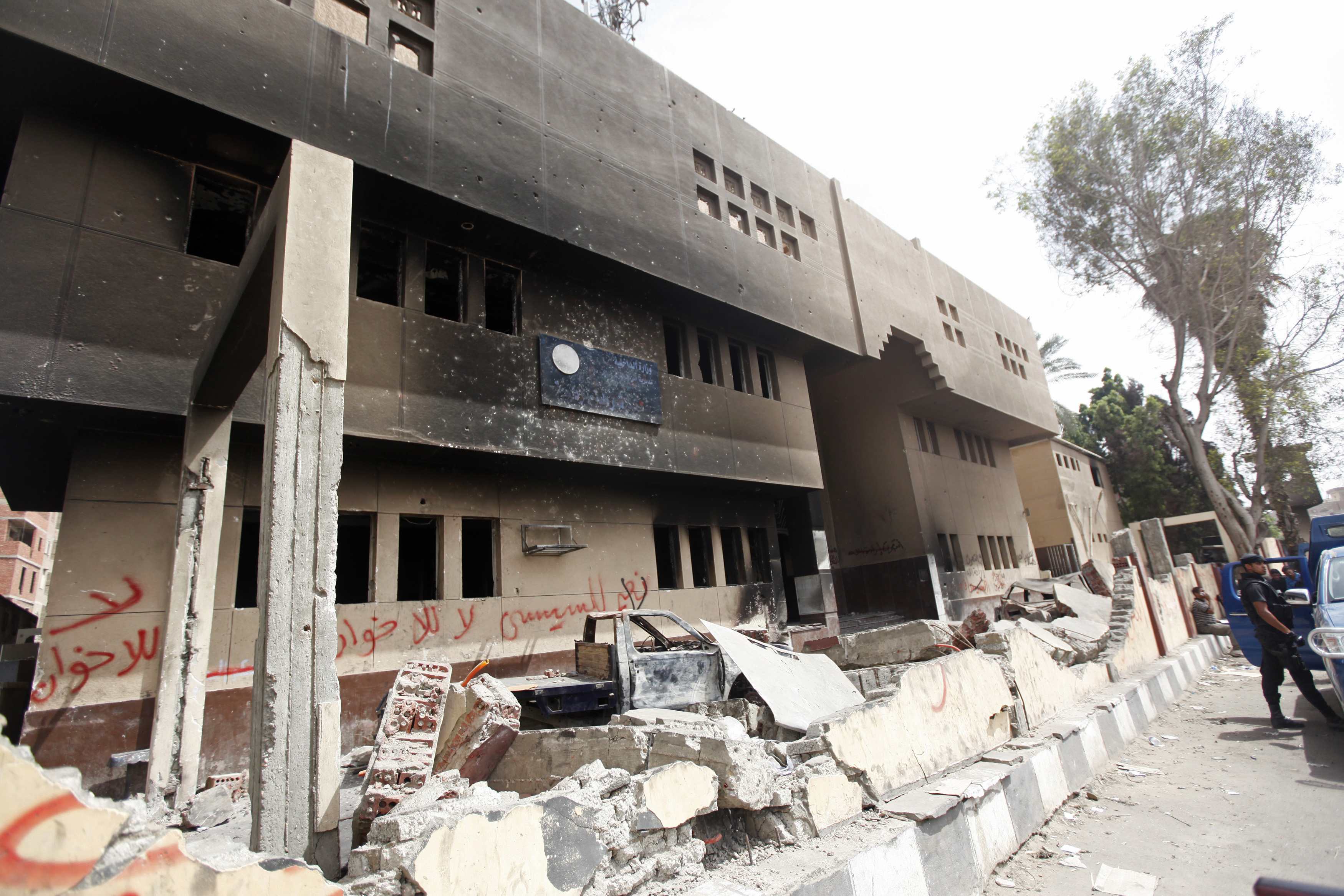Latest NEWS
- Aswat Masriya, the last word
- Roundup of Egypt's press headlines on March 15, 2017
- Roundup of Egypt's press headlines on March 14, 2017
- Former Egyptian President Hosni Mubarak to be released: lawyer
- Roundup of Egypt's press headlines on March 13, 2017
- Egypt's capital set to grow by half a million in 2017
- Egypt's wheat reserves to double with start of harvest -supply min
- Roundup of Egypt's press headlines on March 12, 2017
HRW criticises Egypt's mass death sentences - statement

A view shows a damaged police station burnt in a blaze by supporters of former president Mohamed Mursi in Kerdasa, a town 14 km (9 miles) from Cairo in this September 19, 2013 file photograph. An Egyptian judge sentenced 185 Muslim Brotherhood supporters to death on December 2, 2014 over an attack on a police station near Cairo last year in which 12 policemen were killed. REUTERS/Mohamed Abd El Ghany
CAIRO, Dec 3 (Aswat Masriya) - Human Rights Watch (HRW) criticised Wednesday the mass death sentence issued against 185 defendants accused of killing police officers in 2013.
The 185 defendants were convicted of breaking into the main police station in Kerdasa, a town 14 km from Cairo, killing at least 11 policemen, mutilating their bodies, and attempted murder of 10 others.
The international watchdog emphasised that "serious crimes were committed during the Kerdasa attack", but stressed the right of those reponsible to a fair trial. It added that it was "unfair" for everyone to be tried in mass proceedings.
"Mass death sentences are fast losing Egypt's judiciary whatever reputation for independence it once had," HRW MENA Director Sarah Leah Whitson said. "Instead of weighing the evidence against each person, judges are convicting defendants en masse without regard for fair trial standards."
The court referred the defendants to the Grand Mufti after confirming that they were guilty of committing the crimes, a source at the Giza Criminal Court told Aswat Masriya. "There is evidence to incriminate each defendant individually."
Referral of files to the Mufti is a procedural step taken to decide whether or not a defendant may be sentenced to death.
The main police station in Kerdasa was hit by rocket-propelled grenades and torched by masked assailants in August 2013. The policemen were reported to have been tortured to death and some of their bodies mutilated.
The court is scheduled to issue its final ruling on January 24.
The attack came shortly after police forces forcibly dispersed two sit-ins in support of former President Mohamed Mursi on August 14, 2013, causing the death of hundreds of protesters in what was described by HRW as "the most serious incident of mass unlawful killings in modern Egyptian history."
A court in Minya has served over 1000 Muslim Brotherhood supporters preliminary death sentences in March and April. The same court later ratified the death sentences of 220 of the said defendants after consulting the Mufti. The sentenced defendants included Mohamed Badie, the Muslim Brotherhood's supreme guide.
The mass death sentences have also been widely condemned by a number of states, international bodies, and civil society organisations.










